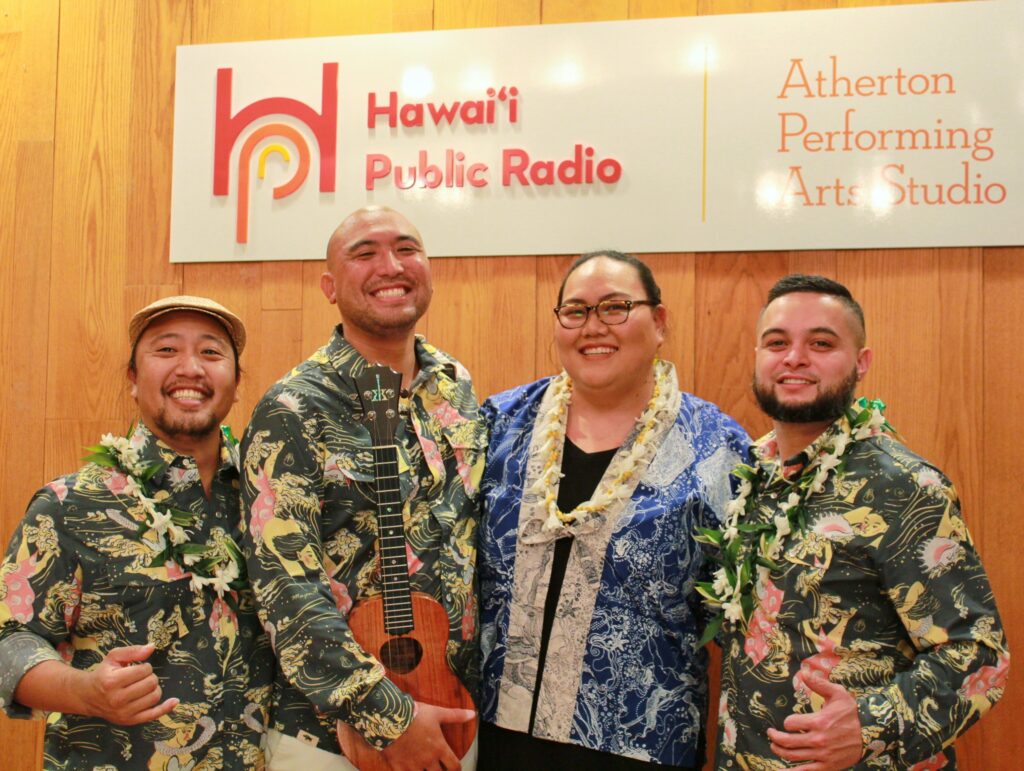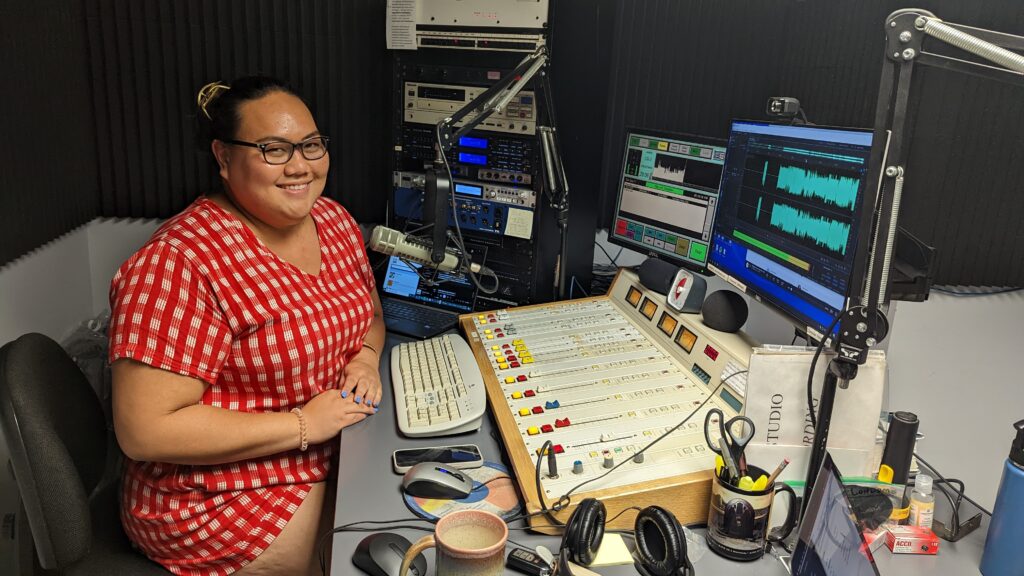
Photo Credit: Hawaii Public Radio.
“Local” has a hundred-year meaning for the state’s public radio organization and it’s dedicated to finding new ways to celebrate it, especially with the freedoms of a noncommercial station.
In the thriving musical ecosystem of Hawaii, Hawai’i Public Radio (HPR) has emerged as a sanctuary for those seeking a clear-eyed and deeply understood appreciation of Hawaiian music. One of the key people in this project is none other than Nick Yee, the station’s program director.
Yee sees music as a way to honor and educate on Hawaii’s unique cultural identity. “We’ve got an interesting history here in Hawaii,” he wryly says about the colonial nature of Hawaii’s relatively recent past. “All of the US has a very colorful, sometimes dark history. Hawaii is no exception to that. The difference is that we are very, very in touch with our native communities here.” That connection to the native populations and local communities builds out an ethos at the station. “It’s a vehicle to remind us and to educate not only ourselves but the broader community about what’s important within that culture and why it’s unique and ultimately why it needs to be celebrated,” Yee shares.
For Yee, the core of much of this celebration is a trio of Hawaiian music shows on HPR—Kanikapila Sunday, Hawaiʻi Kulāiwi, and Mauka to Makai—each distinct in its narrative but unified in their mission to portray a deeper understanding of the essence of Hawaiian and local music.
“Kanikapila Sunday is kind of considered the intro show,” Yee explains. “Keali’iloma who currently runs it […] her actual family lineage is very deeply rooted in Hawaiian culture. She’s actually learning Hawaiian,” he continues, portraying the show as a living journey of learning and sharing.
Hawaiʻi Kulāiwi, hosted by Paige Okamura, is where listeners get “a mini musicology lesson” every week, as described by Yee. “She’s fluent not only in the language but also in a lot of the stories behind it,” Yee explains, underscoring how Okamura’s in-depth translations and narratives enhance the music, much of which tells a deeply metaphorical and sometimes opaque story that greatly benefits from a line-by-line explanation.

Photo Credit: Hawaii Public Radio.
Mauka to Makai delves into a broader music scene of the islands. “That’s the closest thing we have to a local music show,” Yee states. He talks about the host, Roger Bong, and his endeavor through his record label, Aloha Got Soul, to resurrect underground Hawaiian musical gems. Yee reflects on the long forgotten but now unearthed local artists like funk and soul musician Mike Lundy, whose 1980 record Nobody Knows About was discovered and first released by Aloha Got Soul in 2013.
Reflecting deeper, Yee emphasizes the meticulous curation behind these shows, aimed at offering a genuine and inclusive showcase of Hawaiian music. “We wanted to do local from the voices of locals. We wanted to represent it from the people, for the people. And this is not necessarily a product to be sold,” he asserts. Yee makes clear the value HPR has as a noncommercial, publicly funded station. Looking at Hawaiian music from inside facing outward makes it a clear departure from commercial caricature to a more genuine representation.
One of the distinct features of HPR is that it is free from any profit-focused pressures that would force its playlist to be filled with a small number of well-worn hits. The programming Yee and his team build is crafting a unique space in Hawaii’s musical landscape. “The one thing I really wanted us to hammer home that separates us from commercial [stations] is that we have the ability to tell stories,” Yee articulates. This narrative-centric approach educates listeners, fostering a stronger bond between the community and its musical roots.
Looking ahead, Yee harbors visions of expanding the station’s reach, possibly through an expanded digital stream, with a continued focus on community engagement and preservation of Hawaiian music. “It is noncommercial and that’s the beauty of it. It is that freedom and flexibility to try something new,” he shares, reflecting the ethos of experimentation that drives HPR’s programming.
Furthermore, Yee’s commitment to the local scene and history in the programming is emphatic. “To me, it’s the art. It’s the art and it’s the commitment to the community and good programming and the cultural aspect of it,” he says, firmly underlining HPR’s mission.
HPR’s focus on authenticity and inclusivity markedly sets it apart from other stations, most directly from many across the islands, offering a unique space for the community to explore and celebrate their musical lineage. It also stands as a critique of commercial stations’ narrow playlists. Yee remarks, “There’s a great musical culture there, but it goes on and on and on. And I was like, same thing with Hawaiian music […] I need more of the musicology. I need you to run long. This stuff goes all the way back to the dawn of recorded music.”
Through Yee’s lens, HPR unfolds as a dedicated effort to preserve and promote Hawaiian music, carving a significant niche in the local music scene. With a clear philosophy rooted in authenticity and a deep-seated respect for the culture, the station broadcasts out as a rich, vibrant voice amidst Hawaii’s diverse, long musical history, showcasing radio’s potential as a platform for cultural preservation and education.
Nick Yee and the entire staff built their foundational beliefs out of a profound appreciation for Hawaii’s musical heritage and a staunch commitment to “Building Community Through Music”. The programming philosophy at Hawai’i Public Radio is not just about broadcasting tunes; it’s about echoing the authentic resonance of Hawaiian cultural achievement through the airwaves.